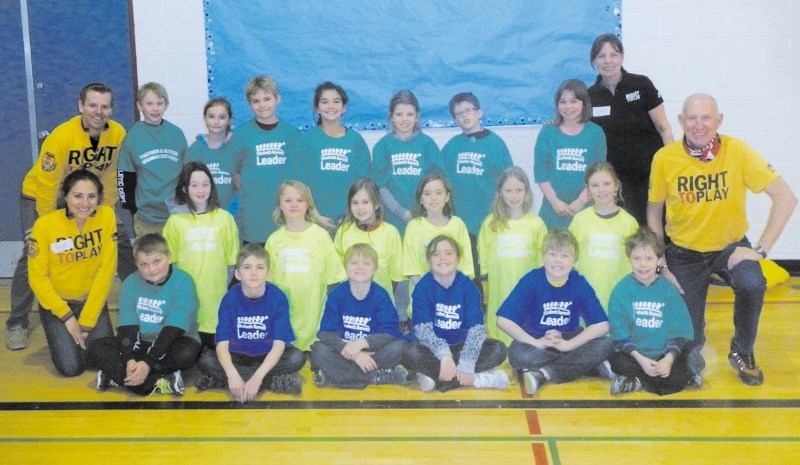In September 1990, the United Nations ratified the Convention on the Rights of the Child. In total 194 countries signed off on this document. Some of the rights include the right to privacy, the right to an identity, the right to protection and the right to play.
Over the last 14 years, the humanitarian organization Right To Play has developed play-based, educational programs, helping over one million disadvantaged children in 20 countries. A key component is the training of Junior Leaders. These are boys and girls aged eight to 16, and to date there are over 9,000 Junior Leaders worldwide.
I first saw Junior Leaders in action in 2011, when I visited five schools in Benin, West Africa. As an honorary athlete ambassador for Right To Play, I travelled with two other athlete ambassadors, Caroline Ouellette, four-time hockey gold medalist, and Heather Moyse, two-time bobsleigh gold medalist. At Dogoudo School, Junior Leaders taught us a relay game aimed at promoting teamwork, and at the Vedoko School for the deaf, we participated in a dodgeball game learning about protecting ourselves and each other.
Now, for the first time, Right To Play is training Junior Leaders across Canada. This program is being rolled out at 150 schools across the country, and on April 15 and 16, my wife Sue and I attended the “Play Academy” at Elizabeth Barrett School in Cochrane. The objective of these sessions is to develop a group of Junior Leaders and have them teach Right To Play games back at their schools. This is all leading up to a national “Today We Play” day May 8. This will be Canada’s biggest celebration of play, promoting children’s rights, led by Junior Leaders.
The “Play Academy” was led by Jaye and Colin from Right To Play. They are both teachers and had spent the past three weeks travelling the country conducting “play academies”. At 9 a.m. students started to roll in. They were from five schools in Cochrane and area, Elizabeth Barrett, Holy Spirit, Westbrook, St. Timothy, Glenbow Elementary and Ecole Notre Dame Des Valles, with grades ranging from three to 10.
The change in the students over the three-hour academy was incredible. Jaye and Colin soon had them playing games and interacting. After some introductory activities, the students were put into groups, mixing the schools and grades. They then were given games to learn and teach such as “Hungry Spiders”, which demonstrates children’s rights to security and safe shelter, and “Protector Dodgeball”, in which they focus on how to protect themselves and others. The students had to teach the rules of their allotted game and its objectives, demonstrate how it is played, set perimeters, organize the other students and answer questions.
Sue and I monitored and participated in the games, making sure all students were actively involved and defining their roles for the presentations. It was amazing to see them grow in confidence.
We watched as a child in Grade 3, one of the smallest in the session, was at first held back, but once in a group and saw that the others would listen to her she came into her own. Standing in front of all the students she explained the game and its key objectives.
She was definitely one of Right To Play’s first Canadian Junior Leaders in the making.




